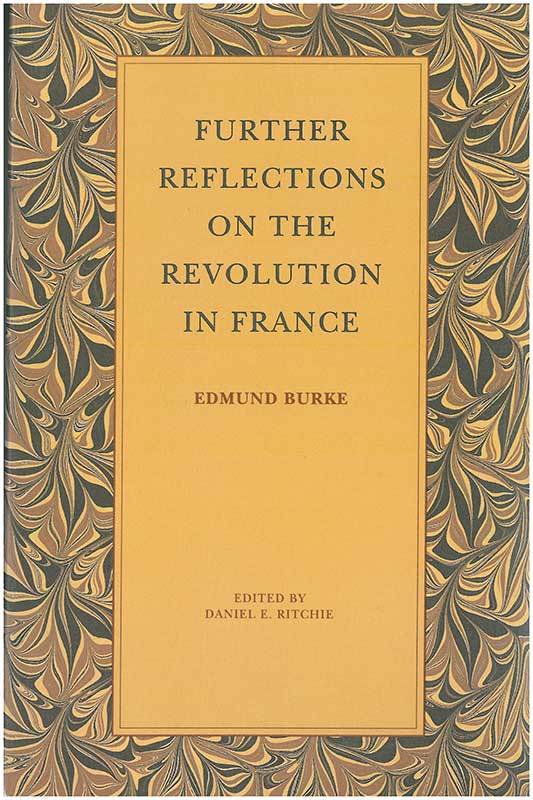

Conor Cruise O’Brien explores Burke’s hostility to “theory,” Darrin McMahon considers Burke’s characterization of the French Enlightenment, Jack Rakove contrasts the views of Burke and American constitutional framers on the process of drawing up constitutions, and Alan Wolfe investigates Burke, the social sciences, and liberal democracy. Edmund Burke’s analysis of revolutionary change established him as the chief framer of modern European conservative political thought.

Contributors to the book examine various provocative aspects of Burke’s thought. The most enduring work of its time, Reflections on the Revolution in France was written in 1790 and has remained in print ever since. The volume sets the Reflections in the context of Western political thought, highlights its ongoing relevance to contemporary debates, and provides abundant critical notes, a glossary, and a glossary-index to ensure its accessibility. Turner and four lively critical essays by leading scholars. This outstanding new edition of the Reflections presents Burke’s famous text along with a historical introduction by Frank M. The most enduring work of its time, Reflections on the Revolution in France was written in 1790 and has remained in print ever since. He also supplies an extended note on the text, a biographical guide, and a bibliography, helpfully presented in discursive form.A new edition of Burke’s masterpiece accompanied by insightful essays that illuminate the perennial appeal of this work The editor's notes are also fuller than those of any previous edition, glossing many literary and biblical allusions missed by previous editors. But the Introduction is more than a compendium of information it is a thoughtful, coherent interpretation of Burke and his book. It situates the Reflections in Burke's life and the development of his ideas, the history of English political thought, the debate about the French Revolution, and the debate the book itself inspired. The editor's Introduction is much more extensive than that of any previous edition. It is certain to become the standard edition for scholars and students alike. Alone among recent versions, it reprints the text of the first edition of the Reflections, and shows how Burke amended it as his knowledge of the Revolution deepened. This edition aims to locate Burke once again in his contemporary political and intellectual setting. Reflections on the Revolution in France is a classic work in a range of fields from history through political science to literature, and securely holds its place among the canon of "great books." Yet its meaning is still contested and often misunderstood, equally by those who wish to admire or to denigrate Burke for his present-day relevance.

The French Revolution is a defining moment in world history, and usually it has been first approached by English-speaking readers through the picture painted of it by Edmund Burke.


 0 kommentar(er)
0 kommentar(er)
